Cooperative proteins help the immune system identify and attack invaders
At the front line of the human immune response are cells called macrophages, which are responsible for identifying intruders and then directing how the entire immune system responds. Associate Professor Diana Hargreaves, postdoctoral researcher Jingwen Liao, and colleagues have now discovered a molecular mechanism that helps macrophages mount a coordinated response tailored to a specific immune challenge. Activating macrophages requires the work of three versions of a protein complex called SWI/SNF: cBAF, ncBAF, and PBAF. The researchers discovered that each variant plays a distinct role in initiating macrophages’ responses to intruders and, consequently, how the immune system regulates inflammation. By delineating these SWI/SNF variants, the team has revealed new immune system mechanisms that could be targeted with therapeutics to regulate inflammation associated with conditions like sepsis, cytokine storm, COVID-19, and many more.
Featured Stories
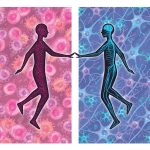 Connecting the dots—From the immune system to the brain and back againBy collaborating across disciplines like genetics, neuroscience, and immunology, Salk scientists are uniquely positioned to lead us into a future of healthier aging and effective therapeutics for Alzheimer’s.
Connecting the dots—From the immune system to the brain and back againBy collaborating across disciplines like genetics, neuroscience, and immunology, Salk scientists are uniquely positioned to lead us into a future of healthier aging and effective therapeutics for Alzheimer’s.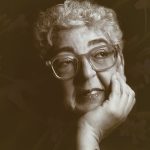 Salk mourns the loss of Joanne ChorySalk Professor Joanne Chory, one of the world’s preeminent plant biologists who led the charge to mitigate climate change with plant-based solutions, died on November 12, 2024, at the age of 69 due to complications from Parkinson’s disease.
Salk mourns the loss of Joanne ChorySalk Professor Joanne Chory, one of the world’s preeminent plant biologists who led the charge to mitigate climate change with plant-based solutions, died on November 12, 2024, at the age of 69 due to complications from Parkinson’s disease. 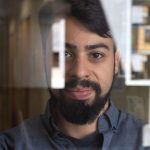 Talmo Pereira—From video game bots to leading-edge AI toolsTalmo Pereira is a Salk Fellow, a unique role that empowers scientists to move straight from graduate school to leading their own research groups without postdoctoral training.
Talmo Pereira—From video game bots to leading-edge AI toolsTalmo Pereira is a Salk Fellow, a unique role that empowers scientists to move straight from graduate school to leading their own research groups without postdoctoral training.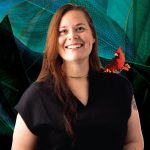 Kay Watt—From Peace Corps to plant scienceAt the heart of the Harnessing Plants Initiative is Program Manager Kay Watt who tackles all of the strategy, site operations, budgeting, reporting, communication, and outreach that keep the whole program on track.
Kay Watt—From Peace Corps to plant scienceAt the heart of the Harnessing Plants Initiative is Program Manager Kay Watt who tackles all of the strategy, site operations, budgeting, reporting, communication, and outreach that keep the whole program on track. 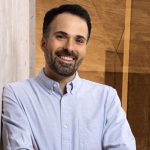 Pau Esparza-Moltó—Seeing mitochondria as more than just a powerhousePau Esparza-Moltó, a postdoctoral researcher in Professor Gerald Shadel’s lab, finds comfort in the similarities between his hometown in Spain and San Diego, where he now studies cell-powering mitochondria.
Pau Esparza-Moltó—Seeing mitochondria as more than just a powerhousePau Esparza-Moltó, a postdoctoral researcher in Professor Gerald Shadel’s lab, finds comfort in the similarities between his hometown in Spain and San Diego, where he now studies cell-powering mitochondria.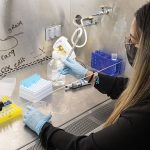 Salk summer programs bring equity and opportunity to the STEM career pipelineThe Salk Institute recently hosted two inaugural events designed to enhance diversity within the scientific community: the Rising Stars Symposium and the Diverse Inclusive Scientific Community Offering a Vision for an Ecosystem Reimagined (DISCOVER) Symposium.
Salk summer programs bring equity and opportunity to the STEM career pipelineThe Salk Institute recently hosted two inaugural events designed to enhance diversity within the scientific community: the Rising Stars Symposium and the Diverse Inclusive Scientific Community Offering a Vision for an Ecosystem Reimagined (DISCOVER) Symposium.






















































